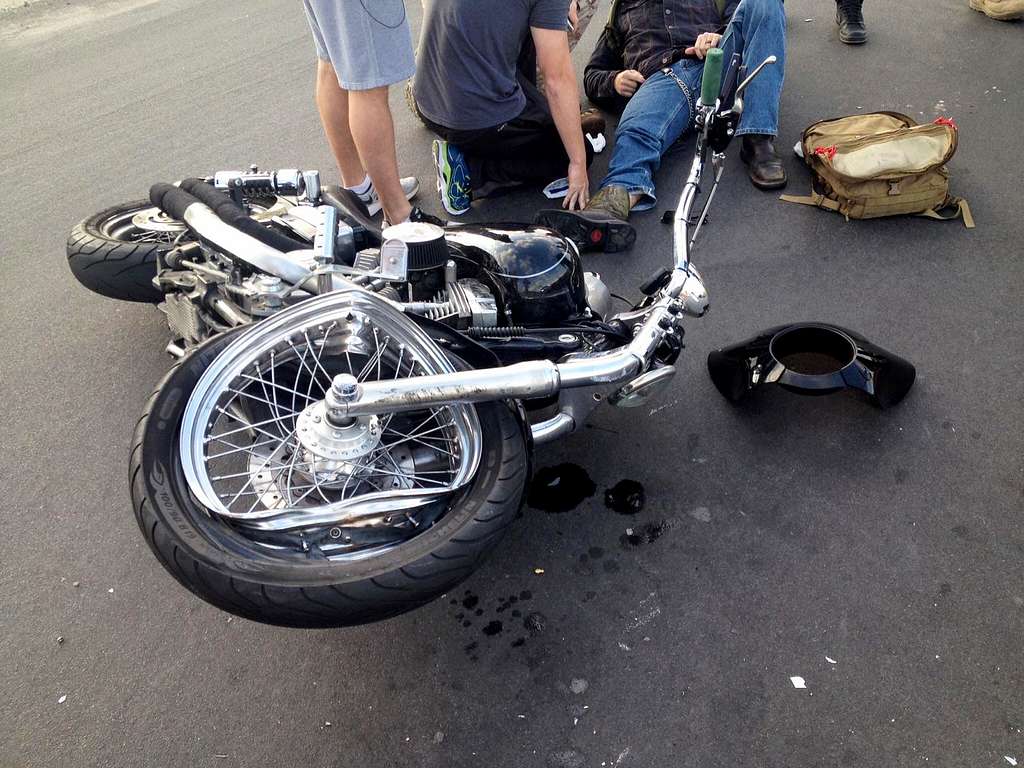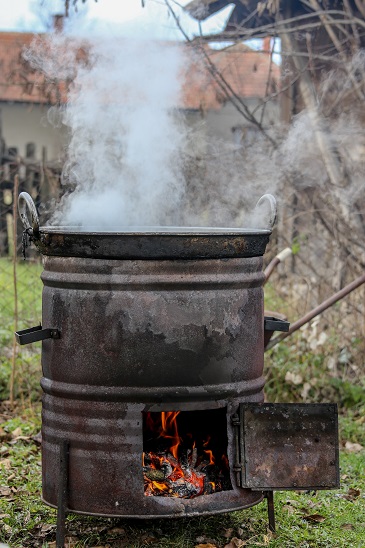Burn injuries can cause intense physical pain, scarring and disfigurement, a mountain of medical bills, lost wages, and emotional problems.
The most common types of burn injury claims in Illinois include those resulting from motor vehicle accidents, defective products, workplace accidents, and unsafe conditions on someone else’s home or business. The type of burn injury claim you’ll pursue in Chicago depends on how and where your injury occurred.
Understanding Burn Injury Claims in Illinois
If another party’s negligence caused your burn injury, you could file a burn injury claim against the at-fault party. Burn injuries can cause intense physical pain, scarring and disfigurement, a mountain of medical bills, lost wages, and emotional problems. Filing a claim allows you to hold the at-fault party accountable and get fair compensation for a burn injury. The damages you can recover include:
- Past and future medical expenses
- Lost wages and diminished earning capacity
- Property damage
- Pain and suffering
- Scarring or disfigurement
- Loss of enjoyment of life
If you lost a family member due to a burn injury, you can recover wrongful death damages like funeral and burial expenses, lost income due to your loved one’s death, and loss of emotional support and companionship.
Most Common Burn Injury Claims in Chicago
There are several types of burn injury claims in Illinois that you can file, depending on the circumstances of your injury. The most common types of claims that Chicago burn injury lawyers handle include:
Motor Vehicle Accident Claim
Motor vehicles, including cars, trucks, and motorcycles, are among the top causes of personal injury accidents. Burns often occur in motor vehicle accidents. Your skin can come into contact with caustic fluids or hot surfaces during an accident. You could be thrown out of the vehicle and sustain a friction burn. Vehicles have many flammable materials that can explode or catch fire during accidents, causing burns.
You can file a claim against the liable party, which may include the other driver, vehicle owner, or driver’s employer. To prove that the other party’s negligence caused your burn injury and qualifies you for compensation, you’ll need to show that the at-fault party owed you a duty of care, breached the duty of care by acting recklessly or carelessly, you sustained burn injuries due to the breach of duty, and suffered measurable losses, such as medical expenses, lost income, and pain and suffering.
Product Liability Claims
Defective products are a common cause of burns. If your burn injury resulted from a defective product, you could seek damages through a product liability claim. Recently, some smartphones, e-cigarettes, airbags, and hoverboards have been found to cause burn injuries. Burns can also occur due to defective space heaters, faulty electrical devices, and other consumer products and auto parts.
Product liability claims can be filed against manufacturers, designers, distributors, or retailers of the product that caused the burn injury. Liability may fall on these parties for failing to properly design or manufacture the product, or failing to provide adequate safety warnings or instructions on how to use the product safely. Succeeding in these claims usually requires proving that the product was defective, you were using the product in a reasonable manner, and the defect caused your burn injury.
Premises Liability Claim
You can file a premises liability claim if you sustain burn injuries on someone else’s property because of unsafe conditions. Property owners are required to maintain a safe environment for tenants, visitors, and patrons. The owner can be held liable for any harm suffered if a breach of this duty leads to burn injuries. Failing to maintain or update electrical wiring, having too few or no smoke alarms, presence of burn injury hazards like caustic chemicals on the premises that are not addressed, improperly handled hot foods or beverages, and fire code violations are some examples of negligence that could lead to burn injuries and a premises liability claim.
To get a successful outcome in your claim, you’ll need to demonstrate the property owner or manager’s duty of care, breach of that duty, a direct link between the breach and your burn injury, and that you suffered damages.
Workers’ Compensation Claim
The Centers for Disease Control and Prevention (CDC) reports that burns are a leading cause of occupational injuries in the United States. Work-related burn injuries commonly occur in industries where workers are exposed to heat sources, chemicals, or electric currents and sparks. Employees in Illinois who suffer burns while on the job have the right to file a workers’ compensation claim. In Illinois, employers are required to carry workers’ compensation insurance to cover employees who sustain injuries when doing their jobs.
According to the Illinois Workers’ Compensation Commission (IWCC), about 91% of Illinois workers are covered under the state’s Workers’ Compensation Act. Workers’ compensation is a no-fault system in Illinois, so you’re entitled to benefits regardless of fault as long as there’s a direct link between your work and the burn injury. Workers’ compensation benefits cover medical expenses, a portion of lost wages, and vocational rehabilitation.
You may also have a valid personal injury claim against a third party if that party caused your burn injury. For example, a subcontractor working on your job site could be liable for your workplace burns. You could file a claim against an equipment manufacturer if you were burned by defective equipment. A reckless driver who hits the employer’s vehicle you were driving when you suffered burns could be held liable. A personal injury lawyer can review your case to establish whether a third party’s negligence contributed to your injuries.
Types of Burn Injuries Covered Under Illinois Law
There are different types of burns that you can sustain. These vary in severity from the least severe first-degree to third-degree burns, with a few practitioners classifying the most severe third-degree burns as fourth-degree burns. The types of burn injuries that you can claim compensation for under Illinois personal injury law include:
Thermal Burns
Thermal burns result from excessive heat, typically direct contact with hot objects, such as flames, hot surfaces, cooking grease, hot liquids, and steam. Misuse of fireworks can also cause thermal burns. Fireworks accident and injury statistics show that these burns have increased over the last couple of years. Thermal burns are the most common type of burns, accounting for approximately 86% of burns.
Chemical Burns
Chemical burns occur when corrosive substances, such as strong alkalis, acids, or solvents, contact the skin. They can damage internal structures when left untreated. The damage from chemical burns may not be immediately apparent, as the effects of chemical absorption can take hours or days.
Electrical Burns
Electrical burns result from contact with an electrical current. Electricity can move through your body. Therefore, it can impact your skin as well as your internal organs. An electrical burn can cause serious complications like nerve damage, muscle damage, and heart problems.
Radiation Burns
Radiation burns usually result from prolonged exposure to the sun’s ultraviolet rays or other radiation sources, such as X-rays and radiation therapy, a common cancer treatment. For example, workers forced to work outside when there’s excessive sunlight may sustain these burns. Radiation burns can cause mild irritation, redness, swelling, blisters, and tissue damage.
Friction Burns

A friction burn is sometimes considered a mix between a thermal burn and a scrape. Friction burns occur when a hard or rough surface rubs against your skin. They’re common in bicycle and motorcycle accidents in which the rider skids on the road surface.
How an Illinois Burn Injury Lawyer Can Help Your Case
If you or a loved one has sustained a burn injury, a burn injury lawyer in Illinois will help in several ways, including:
- Comprehensive case evaluation: A burn injury lawyer will thoroughly assess your claim to determine its validity. He or she will advise you on the type of claim you should pursue based on the circumstances surrounding your injury.
- Evidence gathering: Your burn injury attorney will collect and organize evidence demonstrating the other party’s negligence and the full extent of your injuries, such as medical records, witness accounts, safety logs, police reports, and photos and surveillance videos of the incident.
- Enlist experts: Experienced burn injury attorneys will have access to experts like medical professionals, safety consultants, and burn specialists to analyze your case details and provide testimony on your behalf to substantiate your claim.
- Navigate complex procedures: Your lawyer will have the knowledge and skills to navigate the relevant state laws and procedures that must be followed and adhere to all relevant deadlines to ensure your claim progresses as smoothly as possible.
- Negotiate with insurance companies: A lawyer will accurately calculate the total losses related to your burn injury and negotiate a fair settlement with the liable parties on your behalf.
- Representation during trial: If a fair settlement can’t be reached, a burn injury attorney will take your claim to trial and represent you in court to help you receive maximum compensation.
There are deadlines for filing the different types of burn injury claims in Illinois, so you should seek assistance from a burn injury lawyer as soon as possible. The Chicago personal injury lawyers at Ankin Law bring three decades of experience to your case. Contact us today to schedule your free consultation and learn more about how we can help.


Join the conversation!